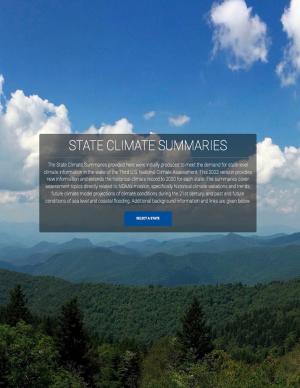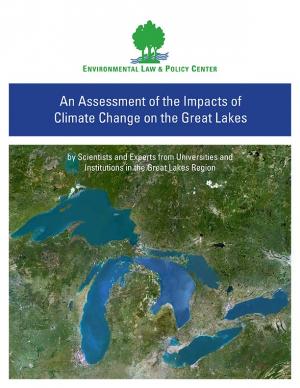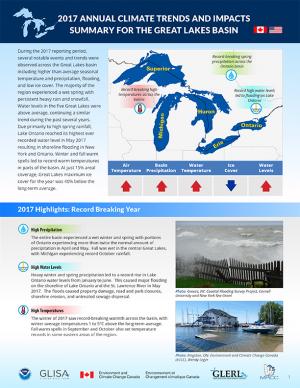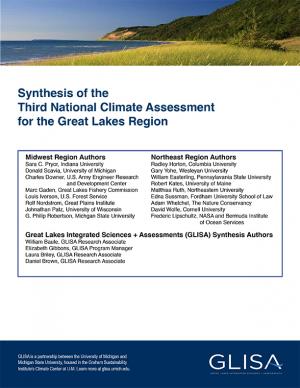Access a range of climate-related reports issued by government agencies and scientific organizations. Browse the reports listed below, or filter by scope, content, or focus in the boxes above. To expand your results, click the Clear Filters link.
The State Climate Summaries provided here were initially produced to meet the demand for state-level climate information in the wake of the Third U.S. National Climate Assessment. This 2022 version provides new information and extends the historical climate record to 2020 for each state. The summaries cover assessment topics directly related to NOAA’s mission, specifically historical climate variations and trends, future climate model projections of climate conditions during the 21st century, and past and future conditions of sea level and coastal flooding. Additional background information and links are given below.
Climate change is causing significant and far-reaching impacts on the Great Lakes and the Great Lakes region. This report, from 18 leading scientists and experts from Midwest and Canadian universities and research institutions, draws on the array of existing research to assess how the shifting global climate impacts the unique Great Lakes region.
Coordinated by a partnership between climate services organizations in the U.S. and Canada, this product provides a synthesis report summarizing the previous years’ climate trends, events, new research, assessments, and related activities in the Great Lakes region. The 2017 report provides an overview of the climate trends and impacts in the basin for the year, including information on the past year’s climate trends, a summary of some of the major climatic events, and a summary of relevant new climate research and activities. It was developed as a longer term trend analysis and compilation of the existing Great Lakes Region Quarterly Climate Impacts and Outlook and is intended for use by managers and practitioners at federal, state, provincial, regional, and local scales, as well as for stakeholders and the general public. The report is also available for download from binational.net.
This report synthesizes available science on the observed and projected impacts of climate change in the Great Lakes Basin and documents the climate change assessment methods applied in the region. It was initiated in support of commitments under Annex 9-Climate Change Impacts of the Great Lakes Water Quality Agreement to take into account the climate change impacts on the chemical, physical, and biological integrity of the waters of the Great Lakes and communicate and coordinate binationally regarding ongoing developments of domestic science. The report draws upon the range of research conducted by various levels of government, academia, and other organizations and the growing body of knowledge in areas of ecological research and climate change and provides researchers, managers, and decision makers with a time-stamped, thorough, and methodical examination of that climate change science.
Intense rainstorms, floods, and heat waves will become more common in the Great Lakes region due to climate change in the coming decades. While ice-cover declines will lengthen the commercial navigation season on the lakes, warmer lake temperatures will increase risks from invasive species, and could threaten water quality. Material in this report is largely a synthesis of the information contained in the National Climate Assessment’s chapters on the Midwest (Chapter 18) and Northeast (Chapter 16). Donald Scavia, GLISA's co-director, was one of the convening authors of the NCA's Midwest regional chapter; GLISA also served as a hub for the compilation of technical inputs for the Midwest chapter.








